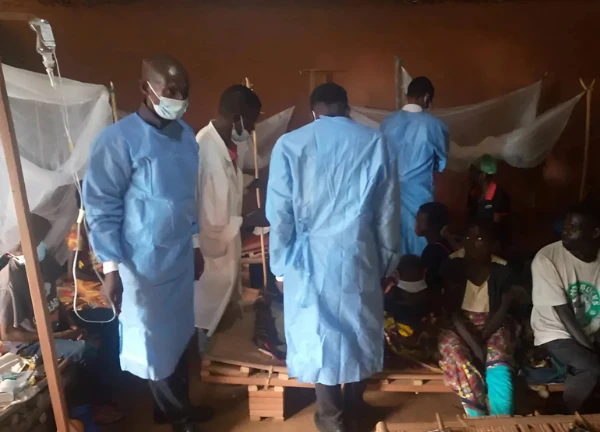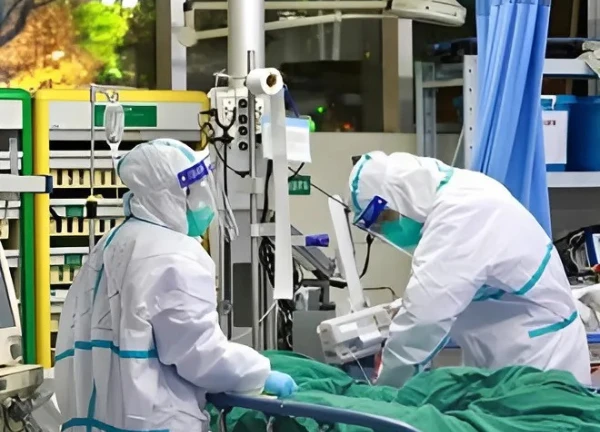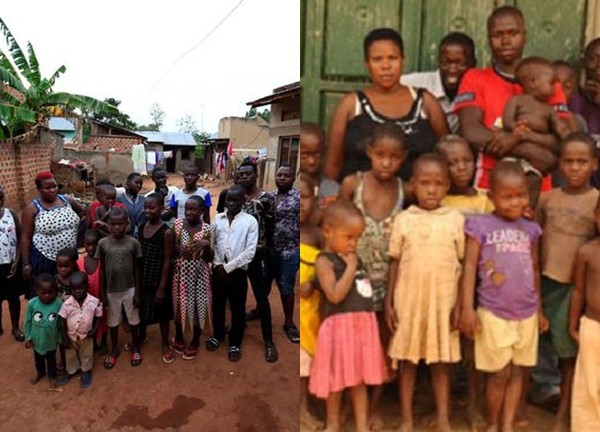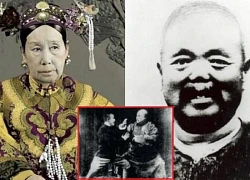Shocked by the risk of Ho Chi Minh City being infected with disease X, the Ministry of Health intervenes?

7 | 0 Discuss | Share
Once roaming the vast grasslands of North and East Africa, the northern white rhino – Ceratotherium simum cottoni – is now the last two individuals left alive thanks to special human care.
While conservation efforts have stalled, the only hope left now lies in advanced biotechnology and genetic engineering – a gamble between life and extinction.
From the golden age to the brink of extinction
Not so long ago, the northern white rhino was a common animal in the rich plains of Sudan , Congo , Uganda and the Central African Republic. With a massive body, a body length of up to 4 meters and a weight that can reach 2,300 kg, they are one of the largest mammals in the world, second only to African elephants.
The characteristic that makes this animal both legendary and a target for poachers is two rare horns – in which, the front horn can be up to 1.5 meters long. With the belief in the healing value of traditional medicine as well as the need for luxury decorations, rhino poaching has become an uncontrollable "pandemic".
Not only humans are a threat, the protracted armed conflicts in the northern white rhinoceros' habitat have also caused serious damage to their habitat. Under the pressure of violence, deforestation and illegal hunting, the number of this species has declined dramatically, only counting on the tip of a finger.
Fateful bargain : the death of the last male
2018 marked a heartbreaking turning point in the history of wildlife conservation when Sudan – the world's last male northern white rhino – breathed its last due to old age in Ol Pejeta Reserve, Kenya. Sudan's death is not only the loss of individuals, but also pushes the entire subspecies to the brink of extinction.
Sudan left behind the last two females: Najin (born in 1989) and her daughter Fatu (born in 2000). Both are currently living under intensive care in Kenya. However, both Najin and Fatu are no longer capable of natural fertility. Najin was excluded from the breeding program due to serious bone and joint problems, while Fatu was unable to get pregnant because of a degenerative uterus.
With no males left and both females losing their ability to reproduce, the hope of nature conservation has officially been extinguished. But the scientists did not give up.
Fragile hopes from biotechnology
In a bold effort, experts from the San Diego Zoo Wildlife Coalition (USA) are turning to artificial reproduction technology and genetic engineering to save the northern white rhinoceros from extinction.
Specifically, they are studying preserved skin cells from 12 different northern white rhinos, stored at the " Frozen Zoo " – a huge biobank containing the genetic material of more than 1,000 rare animals. The goal is to turn these skin cells into pluripotent induction stem cells, which then develop into artificial sperm and eggs.
By combining these cells to create embryos, which are then transferred into the body of the southern white rhinoceros (Ceratotherium simum simum), a genetically close relative, the scientists hope to "surrogate" the birth of new northern white rhinos.
Dr. Aryn Wilder , a researcher at the San Diego Zoo, said:
"Having a stable genetic base from Frozen Zoo helps us reproduce new individuals with high genetic diversity – a key factor in building a healthy population in the future."
Not simply creating a rhinoceros
Although computer models show that after 10 generations of breeding it is possible to create a population of northern white rhinos that are not inbreeded, the reality is still fraught with challenges. The conversion of skin cells into reproductive cells is an extremely complex process and has never been successfully tested in rhinos.
In addition, the possibility that the body of the southern white rhinoceros can successfully conceive the embryo of the northern subspecies is still a big question mark. Even if the embryo attaches to the uterus, pregnancy and childbirth must be closely monitored, as even a minor complication can destroy the entire effort.
Not to mention, in order to build a new population capable of natural reproduction and maintain the species, the world needs a breeding process of years, even decades, with healthy individuals, suitable living conditions and a restored natural environment.
Cloning – the last gamble?
Besides embryogenesis technology, another direction being considered is asexual cloning – creating genetic copies of dead rhinos from stored cell lines. This technology has been successfully applied to Dolly sheep, dogs, cats and more recently some wild animals such as the black-footed ferret and the Przewalski horse.
However, rhino cloning is a much more complex problem, not only because of its special biological structure, but also because of the difficulty of implanting embryos, monitoring pregnancy and postnatal care for an animal weighing up to tons.
Not just a species – but a symbol
The northern white rhinoceros is more than just an animal. With their massive shape, characteristic horn and history dating back millions of years, they are a symbol of biodiversity, a living testament to the devastating consequences of uncontrolled intervention in nature.
Saving this rhino is not only scientifically or biologically significant, but also an affirmation of humanity in the fight to preserve the planet – that we can correct the mistakes of the past if we start to act in time.
Will it still catch up?
The question is: Do we have the time, resources and commitment to save the northern white rhino before it's too late? The answer is still unclear. But what is certain is that, if humanity were to lose this rare animal, it would be an irreversible loss – a permanent scar on the planet's biodiversity picture.
The northern white rhinoceros is hovering between life and extinction. They can't save themselves – but humans can. The question is: do we really want to do it?
The Mystery Behind Congo's Deadly Malaria Outbreak: Is Vietnam Safe?  Đông Nguyễn15:16:57 19/12/2024Hundreds of people in Congo have died from a dangerous form of malaria, while Vietnam has also recorded many imported cases. The Ministry of Health is stepping up preventive measures to protect public health.
Đông Nguyễn15:16:57 19/12/2024Hundreds of people in Congo have died from a dangerous form of malaria, while Vietnam has also recorded many imported cases. The Ministry of Health is stepping up preventive measures to protect public health.

7 | 0 Discuss | Share

5 | 0 Discuss | Share

4 | 0 Discuss | Share

1 | 1 Discuss | Share




1 | 0 Discuss | Report